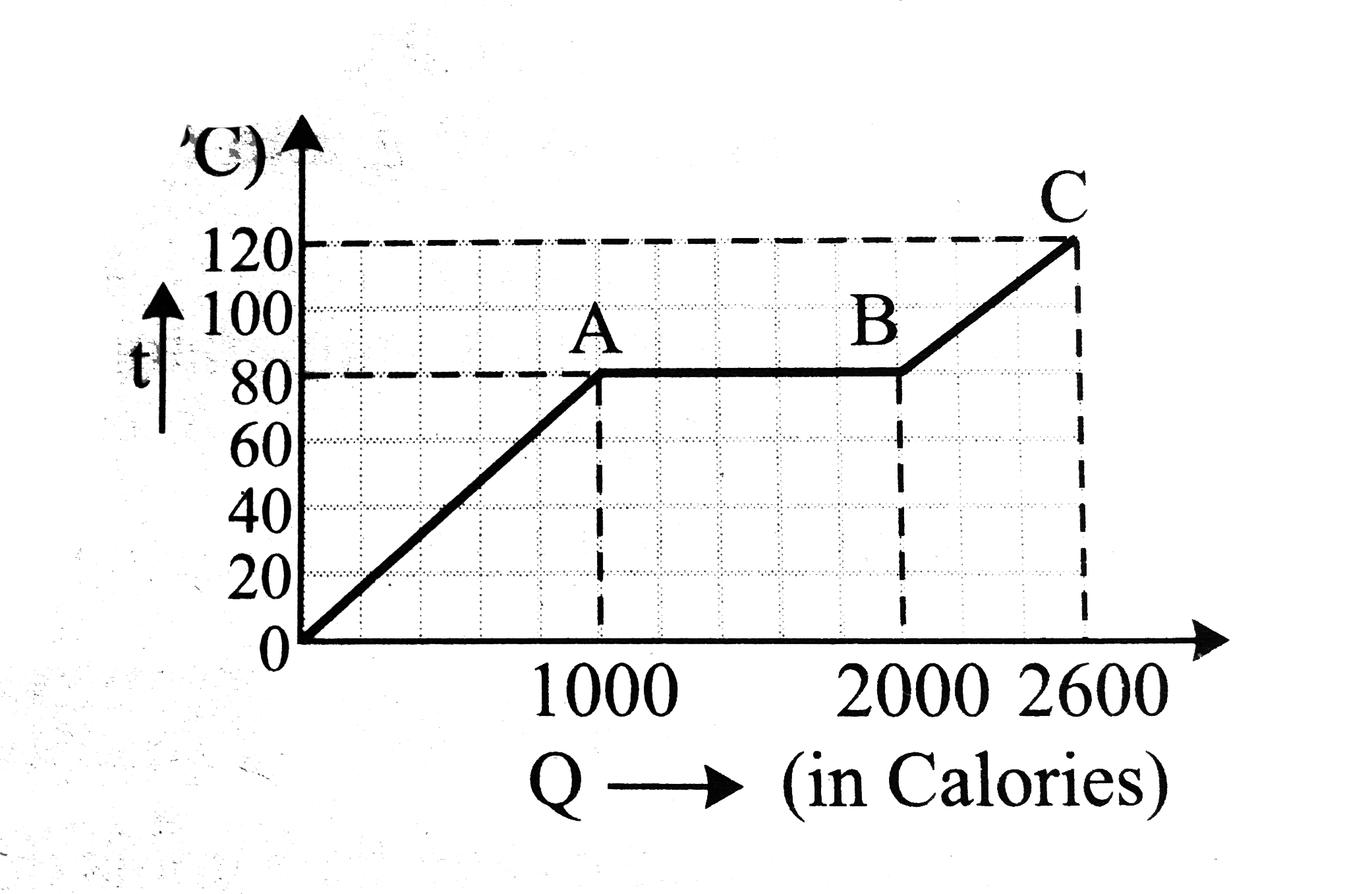Specific heat of a substance can be
finite
infinite
zero
negative
The correct Answer is:A, B, C, D
To determine the possible values of specific heat for a substance, let's analyze the concept step by step.
1. Understanding Specific Heat:
- Specific heat is defined as the amount of heat energy required to raise the temperature of a unit mass of a substance by one degree Celsius (or one Kelvin).
2. Mathematical Representation:
- The specific heat (c) can be mathematically expressed as:
c=QmΔT
where Q is the heat added, m is the mass of the substance, and ΔT is the change in temperature.
3. Analyzing Mass:
- The mass m of any substance is always a positive finite value. It cannot be zero (as there would be no substance to heat), negative (as mass cannot be negative), or infinite (as this is not physically meaningful).
4. Implications for Specific Heat:
- Since the specific heat is derived from the heat added and the mass, and since the mass is always a positive finite value, the specific heat must also be finite.
- Therefore, specific heat cannot be zero (as that would imply no heat is required to change the temperature) or negative (which is not physically possible in this context).
5. Conclusion:
- The specific heat of a substance can only be a finite positive value. It cannot be infinite, zero, or negative.
Final Answer:
The specific heat of a substance can be finite.
- Specific heat is defined as the amount of heat energy required to raise the temperature of a unit mass of a substance by one degree Celsius (or one Kelvin).
- The specific heat (c) can be mathematically expressed as:
c=QmΔT
where Q is the heat added, m is the mass of the substance, and ΔT is the change in temperature.
- The mass m of any substance is always a positive finite value. It cannot be zero (as there would be no substance to heat), negative (as mass cannot be negative), or infinite (as this is not physically meaningful).
- Since the specific heat is derived from the heat added and the mass, and since the mass is always a positive finite value, the specific heat must also be finite.
- Therefore, specific heat cannot be zero (as that would imply no heat is required to change the temperature) or negative (which is not physically possible in this context).
- The specific heat of a substance can only be a finite positive value. It cannot be infinite, zero, or negative.
The specific heat of a substance can be finite.
Topper's Solved these Questions
- KTG & THERMODYNAMICSBOOK - RESONANCE ENGLISHCHAPTER - KTG & THERMODYNAMICSEXERCISE - PART -IV
9 Videos
- KTG & THERMODYNAMICSBOOK - RESONANCE ENGLISHCHAPTER - KTG & THERMODYNAMICSEXERCISE - Exercise-3
1 Video
- KTG & THERMODYNAMICSBOOK - RESONANCE ENGLISHCHAPTER - KTG & THERMODYNAMICSEXERCISE - PART -I
15 Videos
- KINETIC THEORY OF GASES AND THERMODYNAMICSBOOK - RESONANCE ENGLISHCHAPTER - KINETIC THEORY OF GASES AND THERMODYNAMICSEXERCISE - Exercise
64 Videos
- MAGNETIC FIELD AND FORCESBOOK - RESONANCE ENGLISHCHAPTER - MAGNETIC FIELD AND FORCESEXERCISE - Exercise
64 Videos
Similar Questions
Assertion : Specific heat of any substance remains constant at all temperatures.
Reason : It is given by s=1m⋅dQdt .
View SolutionThe specific heat of a substance varies with temperature t(.∘C) as
c=0.20+0.14t+0.023t2(cal/g∘/C)
The heat required to raise the temperature of 2 g of substance from 5∘C to 15∘C will be
View Solution
Knowledge Check
If specific heat of a substance is infinite, it means a) heat is given out b) heat is taken in c) no change in temperature whether heat is taken in or given out d) all of these
Aheat is given outBheat is taken inCno change in temperature takes place whether heat is taken in a or given outDAll the above
If specific heat of a substance is infinite, it means
View SolutionWhat does it mean , If specific heat of a substance is infinite
View Solution
A substance is in the solid form at 0∘C. The amount of heat added to this substance and its temperature are plotted in the following graph. If the relative specific heat capacity of the solid substance is 0.5, find from the graph (i) the mass of the substance, (ii) the specific latent heat of the melting process and (ii) the specific heat of the substance in the liquid state.
Specific heat capacity of water =1000cal/kg/K
View SolutionSpecific heat capacity of substance A is 3.8 J/gK, whereas the specific heat capacity of substance B is 0.4 J/gK
Which of the two is good conductor of heat ?
View SolutionSpecific heat capacity of substance A is 3.8Jg−1K−1 whereas the specific heat capacity of substance B is 0.4Jg−1K−1.
How is one led to the above conclusion ?
View SolutionSpecific heat capacity of substance A is 3.8Jg−1K−1 whereas the specific heat capacity of substance B is 0.4Jg−1K−1.
If substances A and B are liquids then which one would be more useful in car radiators ?
View SolutionIn variation of specific heat capcity of a substance with temperature is given by C=A+BT2, where A and B are constnts and T is the temperature, Calculate the mean specific heat in a temperature range T = 0 to T =T and the specific heat at the mid-point T/2.
View Solution

